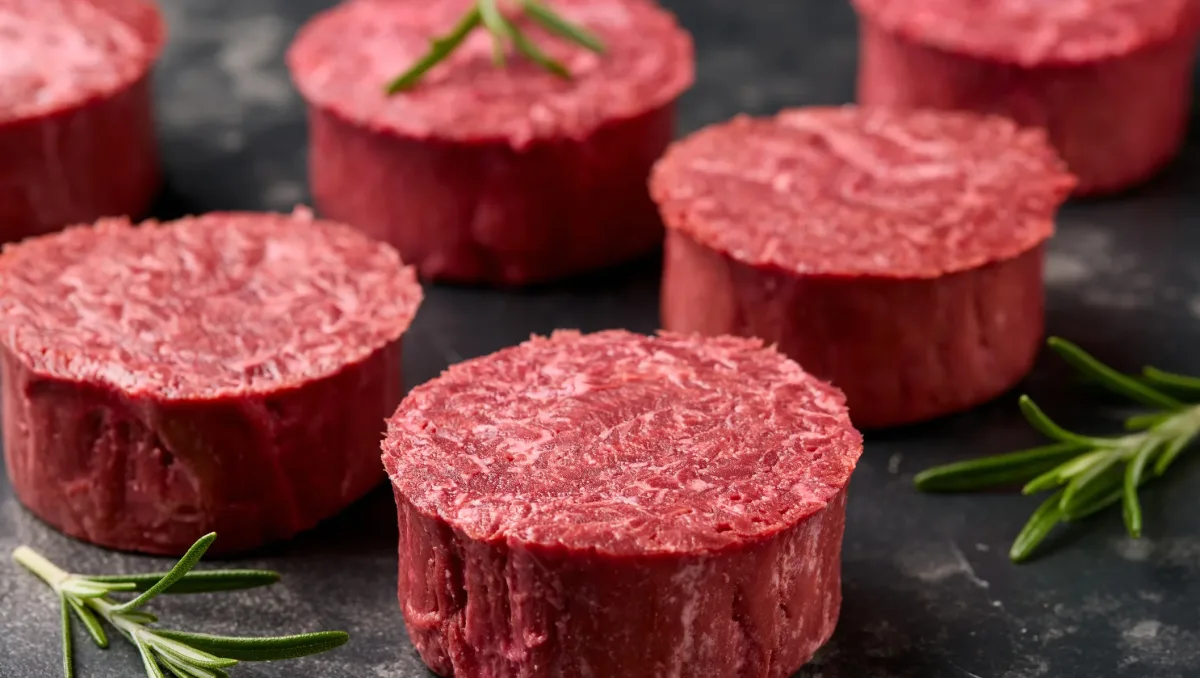One food writer, testing a plant-based steak from Juicy Marbles, kept checking the packaging. Surely this wasn’t vegan? The Ljubljana company, founded in 2019 by three friends who met at a vegan restaurant, has mastered something that eluded the industry for years: a filet mignon that actually fools carnivores. Its secret involves proprietary protein-texturing technology that recreates marbled fat. The result sizzles, bleeds, and—most remarkably—tastes like premium beef.
This matters because Juicy Marbles isn’t selling to vegans. The company’s chief branding officer freely admits the team includes meat-eaters. They’re after a bigger prize: the vast middle ground of consumers who quite like animals but also quite like a good dinner. These people, it turns out, are everywhere.
Europe’s plant-based food market hit 21.51 billion euros last year. By 2034 it should reach 48.25 billion euros. Germany saw plant-based sales soar 226 per cent between 2018 and 2020. Romania’s grew 154 per cent. These are numbers far too big to be ignored
Generation veg
Europe’s Gen Z is driving the trend. It boasts seven per cent vegetarians, four per cent vegans, five per cent pescatarians. Even flexitarianism—cutting meat without ditching it entirely—claims roughly a quarter of European consumers. Among American Gen Z, 37 per cent call climate change their top concern. Over half say they’ll pay 10 per cent more for sustainable products. Their grandparents wouldn’t dream of it.
Health obsessives want functional foods packed with gut-friendly bacteria. Ethical consumers can’t stomach factory farming. Climate-conscious twenty-somethings have done the maths on livestock emissions. Social media helps—TikTok nutritionists and Instagram influencers make plant-based eating look fashionable rather than worthy.
Meat and dairy generate roughly 14.5 per cent of global greenhouse gases, per the UN’s Food and Agriculture Organisation. Livestock occupies over a third of habitable land. Research in Proceedings of the National Academy of Sciences suggests that modest cuts to cattle production—around 13 per cent in wealthy countries—could remove 125 billion tonnes of CO₂ through forest regrowth. That beats three years of fossil fuel emissions.
Beyond burgers
The innovation extends well past fake meat. Spain’s Novameat 3D-prints whole-muscle cuts from pea protein and beetroot juice. Berlin’s Bettaf!sh makes tuna from European seaweed grown regeneratively. Swiss firm Nectariss perfected fermented truffle flavours, growing its B2B customers by 300 per cent between 2021 and 2023. Vienna’s Revo Foods tackles seafood. The variety is staggering.
Money follows opportunity. European foodtech firms raised 4.1 billion euros last year, stable after dropping from 2021’s peak. Europe now captures 32 per cent of global foodtech investment, up from 14 per cent in 2020. Britain, France and Germany lead, but Slovenia’s Juicy Marbles proves you needn’t be in a huge city to build something significant.
Trouble in paradise
Success hasn’t come easily. Many alternatives cost more than conventional products. Some taste odd. Others worry about ultra-processing. The Netherlands saw plant-based sales drop six per cent last year. Britain’s market has flattened. The industry is still learning what works.
Political resistance runs deep. Traditional livestock interests, which receive 1,200 times more subsidies than plant-based competitors, fight hard. Italy banned lab-grown meat in 2023. Brussels removed cultivated meat from its 2040 climate strategy after farmer protests. The old guard won’t surrender easily.
But the trajectory is clear. In Germany, 37 per cent of households bought plant-based milk last year; 32 per cent bought plant-based meat. Spain saw 46 per cent of households add plant-based drinks to their shopping. These products sit in Tesco and Lidl, not just health food shops. Supermarket own-brands have hit price parity with dairy in several markets.
Juicy Marbles now stocks 3,500 stores across Europe, producing two tonnes daily from Ljubljana. The company expects to turn profitable this year. If a Slovenian start-up making plant steaks can achieve profitability, the industry’s commercial viability is no longer theoretical.
Sceptics call this a fad. They’re wrong. Young people have voted with their wallets and won’t reverse course. Technology is catching up to demand. Precision fermentation, cellular agriculture, vertical farming and AI-driven logistics promise further upheaval.
The great food reinvention has only just started.
Photo: Dreamstime.







